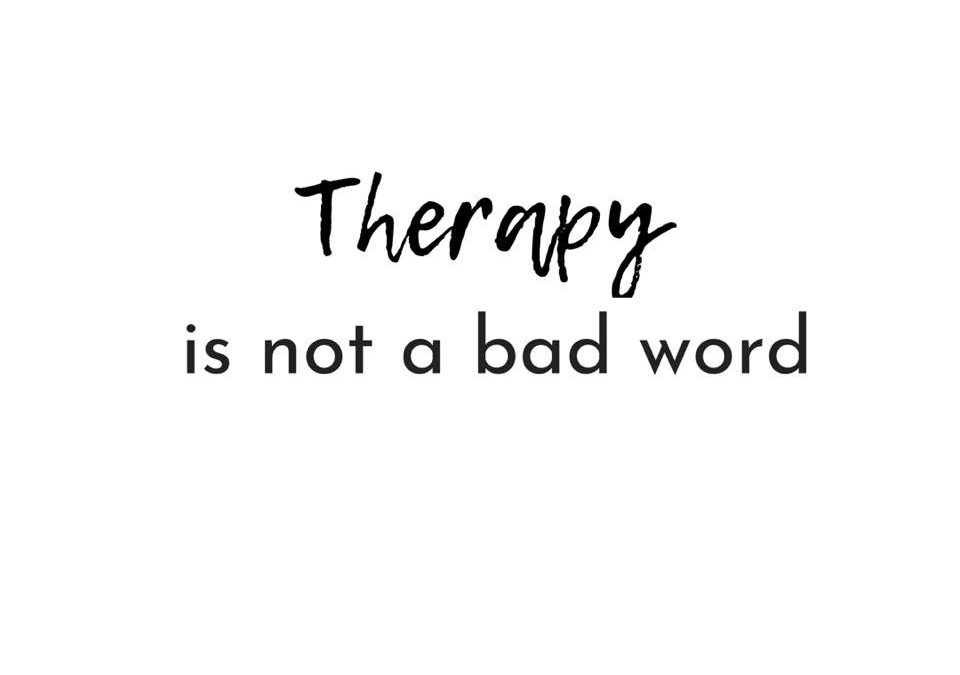When your mentor says it, all you can do is repost and share your own story!
Therapy was not a dirty word in my family, it just wasn’t a real one. I say that to mean that it wasn’t something discussed in my family growing up. We were an active-duty military, Southern, Christian Black family. My parents were first generation college graduates. We survived, “we made it,” we were successful, we prayed. We didn’t have to go to therapy.
Therapy wasn’t bad, it just wasn’t real.
Therapy wasn’t anything we saw as a resource or an option. However, talking was important to our relationship with my mother and it was probably the closest we got to experiencing the listening ear of a therapist.
Could I have used a therapist for any of these major life events?
– adjusting to mom’s remarriage? Yup.
– adjusting to step dad?Yup.
– figuring out the relationship with my bio dad? Yup.
– and step mom? Yup.
– multiple moves? Yup.
– having 4 siblings enter my “only-child” world? Yup.
– maintaining relationships with siblings on my dad’s side? Yup.
– meeting a new sibling as a junior in high school? Yup.
– changing schools, homes, church congregations & friendships? Yup.
With our frequent moves, creating a relationship with a new therapist after every move may have negatively impacted the therapeutic relationship. (A good fit and consistency is important!) Therapy may not have been conducive to our lifestyle and I realize this in hindsight. So while therapy wasn’t real to us, I can definitely acknowledge that it could have been helpful for me as an “only-turned-oldest child” in a new family configuration as one of many reasons.
I got closer to therapy experiences before I finished elementary school. My near-therapist was a Catholic Priest in my 4th and 5th grade (and only) years of private school. I don’t remember his name, but here’s what I do remember:
Whenever it was time for weekly confessional, he always came from around the mesh divider and sat in front of me. He always listened. He didn’t interrupt me. He was approachable enough that I trusted him with my story and my struggles of being a stepchild, a jealous older sibling, a new kid at every school (every year!) and a confused kid about having two sets of parents and trying to get along with all of them. I don’t know that there were any huge “a-ha!” moments for me when we would talk – I was barely developmentally ready for “talk-therapy.” I just knew that it gave me the energy and perspective I needed to try again for another week. Every week. I really appreciated him for the safe space he gave me to explore my thoughts and feelings.
I didn’t officially enter therapy until I was an adult. First it was pre-marital counseling, which shifted into marital counseling, which evolved into divorce process/individual counseling.
I have loved and grown from the work with most of my therapists (not every one was a good fit)! For me, being a therapist “on the couch” of another therapist, either alone or as a couple, I really was able to appreciate our therapy training. It gave me insights into myself as a person being seen through the eyes of another professional.
I have appreciated having my own, very necessary, safe space via another therapist’s expertise. I have appreciated the accountability and the support, the belief and the empowerment that I’ve received in therapy. It has been what’s helped me feel better prepared to show up for not just my own clients, but for my family, my friends and my profession, too! Being in the same shoes as your client is validating! We really care that you have the right fit because the connection and potential work truly depend on it.
I echo the words of my mentor who shares her journey here: therapy isn’t a bad word! It can be a mystery, but it is a mystery with a real solution for your life and the lives of your loved ones.
A few reminders if you’re considering therapy for the first time:
- Remember that it is its own relationship and needs time to establish itself. Give yourself 2-4 sessions to establish a rhythm.
- It’s important that you feel safe, heard & understood. You want to know that your therapist can comfortably speak your language (literally and figuratively). Ask about their specialties and preferred approaches.
- It’s okay to see a few therapists before you make a decision to receive services. Ask about free consultations!

